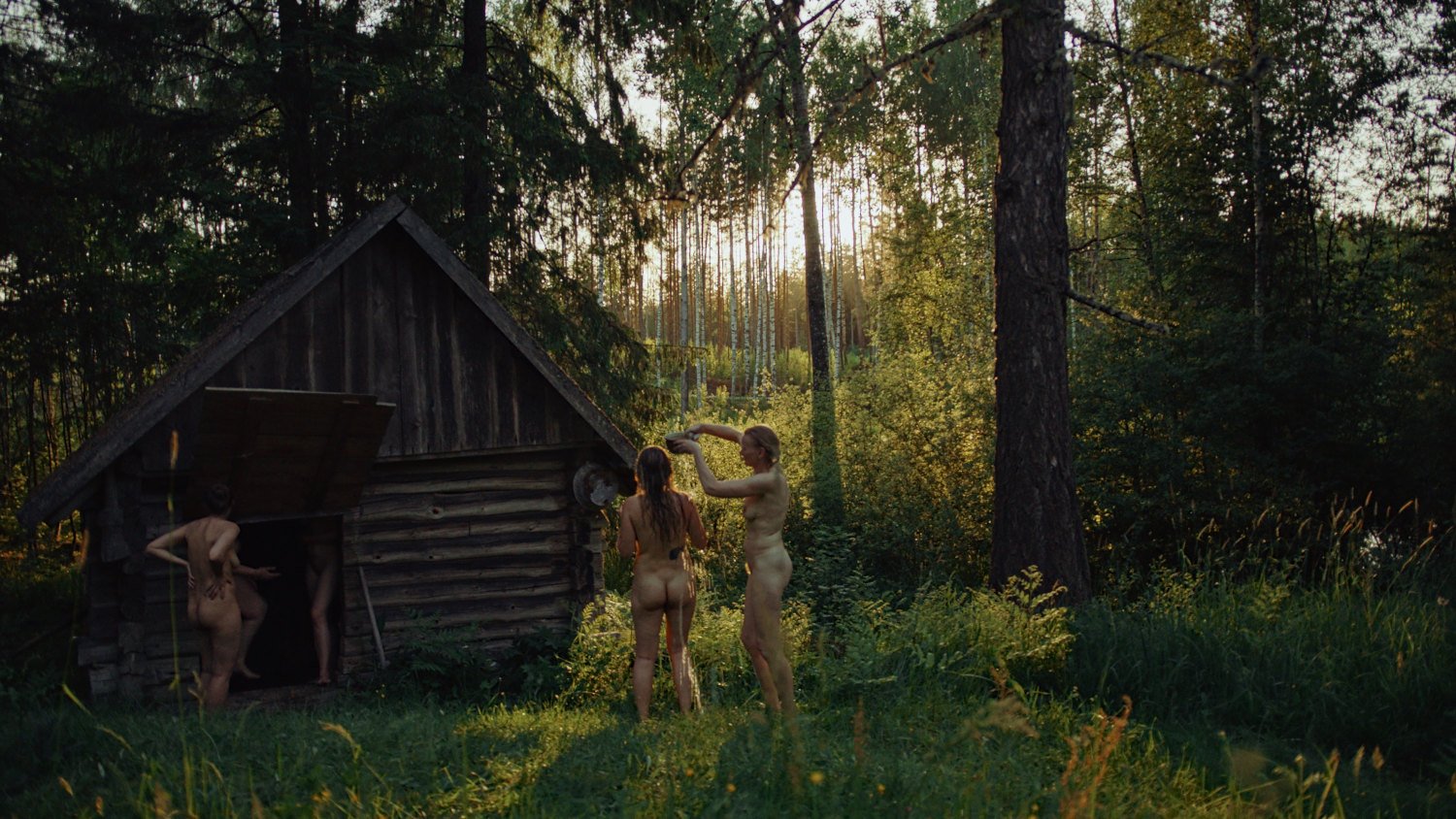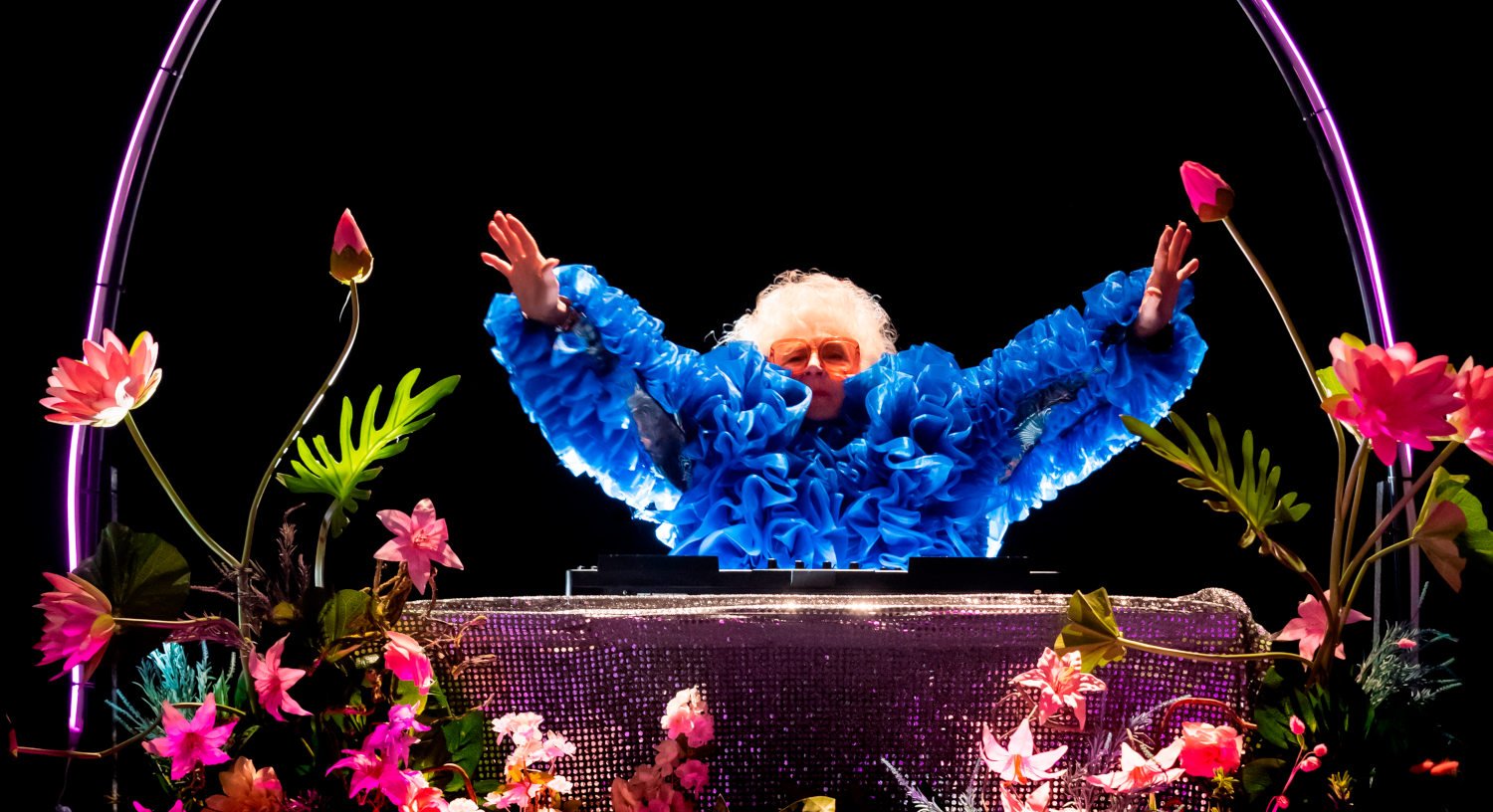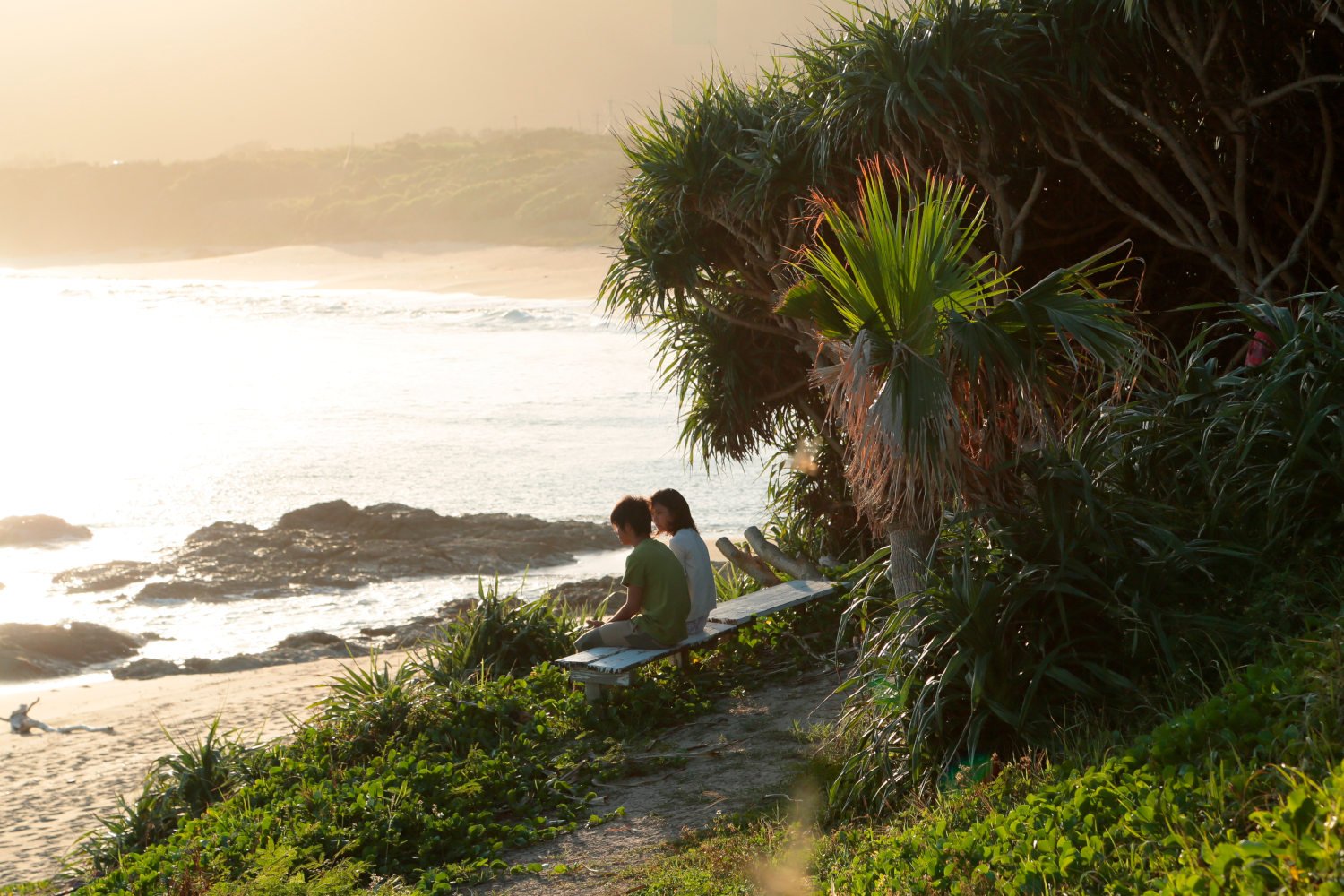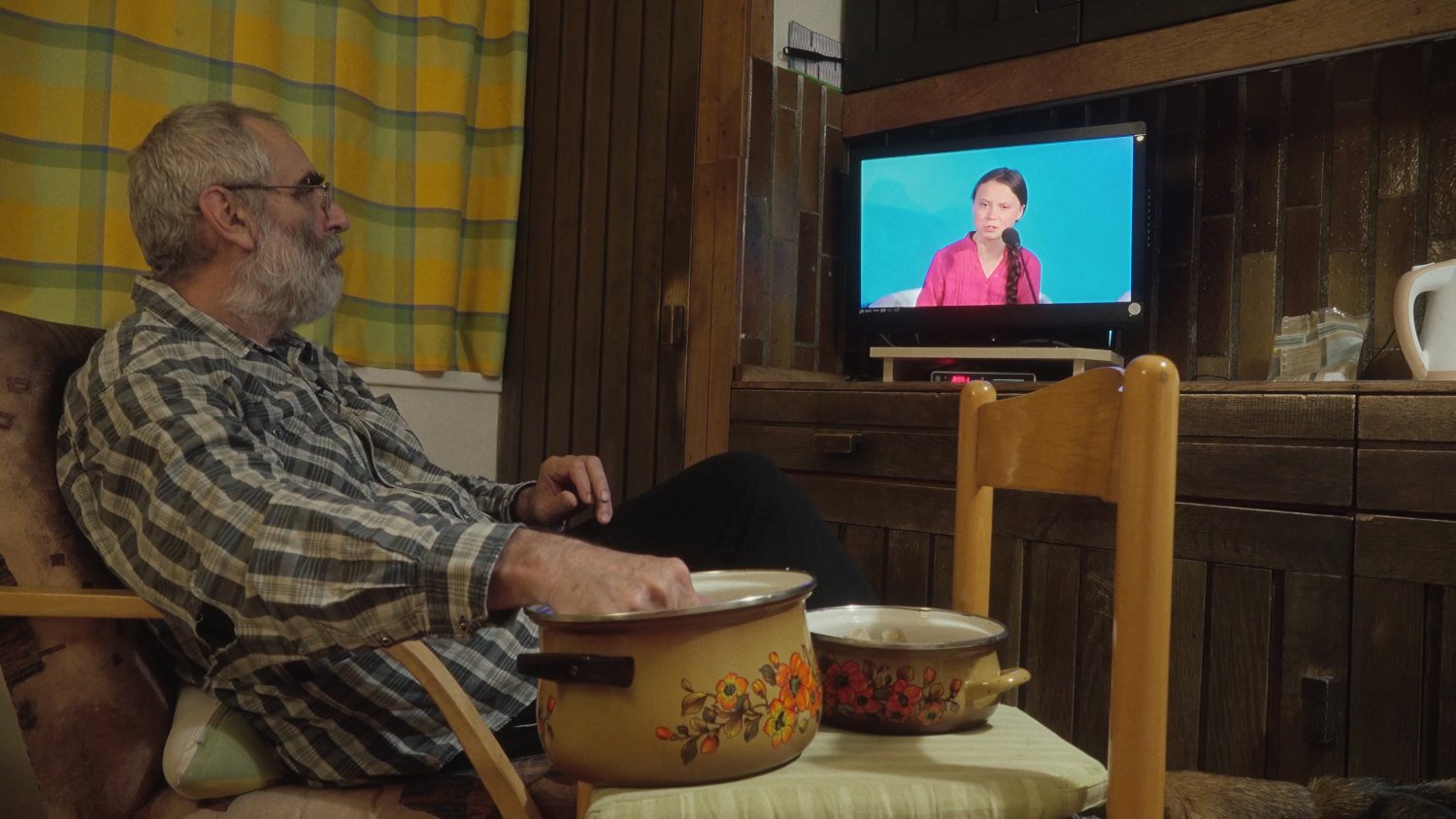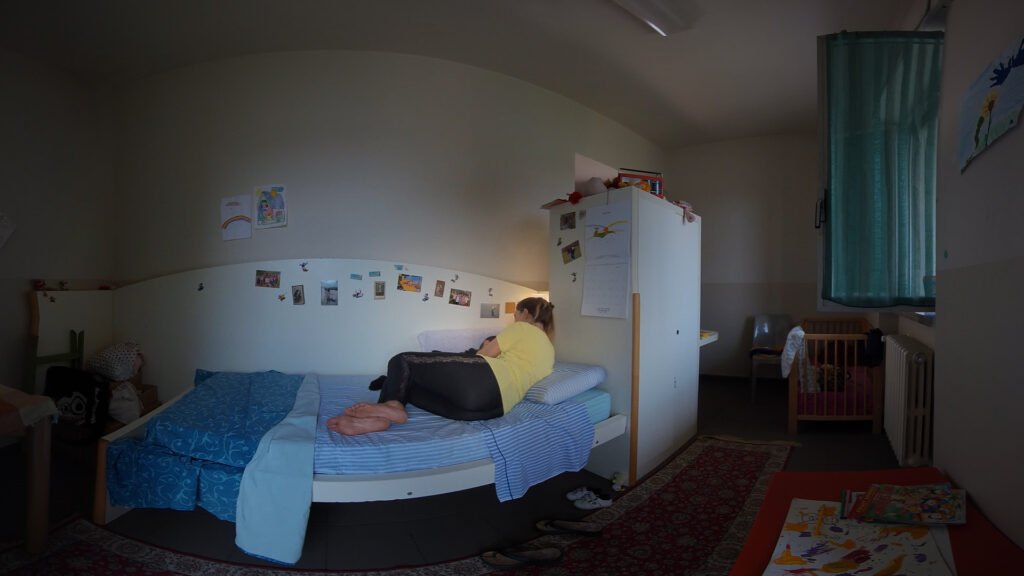The programme of this year's Ji.hlava IDFF will introduce prominent directors as well as significant contemporary topics. A film highlight will be the retrospective of Marguerite Duras. Audiences can also look forward to an expanded virtual reality section with a special focus on American VR production, as well as the latest Czech documentary crop and the very first retrospective of the Czech documentarist Pavel Koutecký. The Inspiration Forum’s discussions will revolve around water, space, artificial intelligence, and communities. The 27th Ji.hlava International Documentary Film Festival kicks off in six weeks, on October 24 –29.
Women, women, and women again!
The twenty-seventh Ji.hlava is primarily dedicated to women. "Ji.hlava has long given a significant platform to female filmmakers, featuring retrospectives of, for example, Susan Sontag, Shirley Clark, Alice Guy, or Agnes Varda. It's important for us to make their works accessible, works that were often marginalized in their time, and to allow audiences to view them with today‘s perspective. So I‘m very pleased that the retrospective of Marguerite Duras will be accompanied by several distinguished guests, including French director Claire Simon – or that the icon of Japanese cinema, Naomi Kawase, will return to Ji.hlava after eighteen years," says the festival director Marek Hovorka about this year's programme.
Topics such as female physicality and sexuality, aging, friendship, childbirth, coming to terms with motherhood, sexual violence, and the effort to break free from gender roles run throughout the program. The Constellations section, which presents a selection of exceptional films from other film festivals, will feature several such films. For example Our Body where director Claire Simon grapples with womanhood and pivotal life stages, from birth through a cancer diagnosis to, for instance, gender transition. Simon, who took her camera to the gynaecological department of the Tenon clinic in Paris, will personally present the film in Ji.hlava. "Capturing pain is the hardest part," says the director.
"A woman's worth is based only on her ability to captivate a man," can be heard in the film Smoke Sauna Sisterhood by Estonian director Anna Hints. The film takes place in a smoke sauna, where the heroines grapple with life's fears, traumas, and relationships. "In the protective dimness of the smoke sauna, all emotions can surface, and no experience is too harsh or embarrassing," says the director, whose debut was featured at the prestigious Sundance festival this year and has since become a festival hit.
The topic of aging is addressed in the film Vika! by the acclaimed Polish director and investigative journalist Agnieszka Zwiefka. The eighty-five-year-old Polish DJ Vika can get crowds dancing, actively challenges stereotypes associated with aging, and strives to live life to the fullest, defying societal norms. At the same time, however, she grapples with the reality that inside her apartment, she is nothing more than a lonely widow.
The film Seven Winters in Tehran by German director Steffi Niederzoll follows the case of Iranian Reyhaneh Jabbari, who was sentenced to death at the age of nineteen for killing a man who tried to rape her. When given the chance to avoid execution by retracting her accusations against her assailant – she chose not to. The film has received awards from festivals such as the Berlinale and CPH:DOX.
Naomi Kawase back at Ji.hlava!
After eighteen years, Japanese director Naomi Kawase returns to Ji.hlava. According to Marek Hovorka, "For over three decades, she has been one of the most prominent Asian filmmakers. Her documentaries and feature films are characterized by a unique poetic touch and a feel for film form and rhythm. Her work stands out for its empathetic portrayal of female protagonists and themes they carry within." The esteemed filmmaker received the Contribution to Cinema Award in Jihlava in 2005. She also took home the Grand Jury Prize and the Golden Camera from the Cannes Film Festival for her first feature film, Suzaku. She also served twice on the jury at Cannes, once alongside Steven Spielberg.
"We will present both her documentary and feature work. The cinematic treatment of the Olympic Games – Official Film of the Tokyo 2020 Olympics – is a captivating spectacle rooted in Japanese cultural traditions," describes Hovorka. "For me, not only people are characters, but also the environment. When the camera stops and the characters disappear, what remains in the shot is the path, the forest, the wind blowing. Existence is not just in the characters, but also in the surroundings. Scenes are also characters in my films," says Kawase about her creative method, which she will introduce to the Ji.hlava audience during a Masterclass. Another film, this time a feature titled Still the Water (2014), addresses adolescence and death – and according to Kawase, ranks among her top three films. "It takes place on a Japanese island where we follow two teenagers who, through the mystical discovery of a drowned body, come of age. Life, death, and love are beautifully intertwined here," says Marek Hovorka.
Lesser known Marguerite Duras
The Ji.hlava festival promises exceptional cinematic experiences this year with a significant showcase of French films featured across several sections. One of the most prominent will be a retrospective dedicated to the famous French writer, screenwriter, and filmmaker, Marguerite Duras. "She is among the most remarkable artists of the 20th century. In many ways, her approach to film direction is more radical and original than that of Jean-Luc Godard," says the curator of the retrospective, David Čeněk. Duras, whose themes revolved around female emancipation, the abandoned and abandoning woman, and a woman strengthening her position primarily through pain, drew material primarily from her own life. This is evident, among other works, in her most famous novel, The Lover.
Ji.hlava will showcase a selection of Duras's lesser-known films, including television reports for the feminist magazine Dim Dam Dom. "If any of us wants to understand the possibilities of film art, we cannot bypass her work, her films without a dramatic plot, her challenge to perceive the film-image and film-sound as two parts of a single entity. Marguerite Duras was able to base her reflection on a successful film on a favourite culinary recipe and the correct dosage of ingredients," explains Čeněk.
The festival will also present her film Le navire Night (1979), which captures conversations of anonymous lovers – and also the feature film I Want to Talk About Duras (2021), directed by the aforementioned Claire Simon; her film portrays the relationship between the famous artist and her thirty-years younger partner Yann Andréa.
Czech Joy reveals first highlights
The festival program traditionally offers a large showcase of current Czech documentaries. Among them will be The World According to My Dad directed by Marta Kovářová, which captures her father’s fight for climate justice in the form of a live diary. The film You Will Never See It All directed by Štěpán Pech will focus on the Czech artist with Slovak roots, Ján Mančuška. In the film Olympic Halftime Czech-Japanese documentary filmmaker Haruna Honcoop delves into the fate of Olympic constructions. While her previous film Built to Last (2017) focused on structures built during socialism across Eastern Europe, her current film maps Olympic construction in Beijing, Tokyo, and Paris.
Translucent Being: Pavel Koutecký
The section Translucent Being will be dedicated to director Pavel Koutecký (1956–2006). It is the very first retrospective of this talented and versatile Czech documentarist, whose works were recognized both in Czechia and abroad. The exhibition introduces Koutecký as a persistent observer, subtle ironist, and brilliant filmmaker, whose primary theme was the transformation of society after November 1989. “Pavel Koutecký was a part of the festival since its early editions. We know he held Ji.hlava dear to his heart, and we always appreciated his films, which he gladly presented at the festival. He managed to combine films about Czech politics with perspective and still give them a distinctive cinematic form. He was, in the best sense of the word, a cinematic chronicler of the Czech journey from socialism to capitalism, and we are delighted to present his cinematic work to a new generation of viewers. It's just a great pity that he can't be with us,” says Marek Hovorka. The programme includes his student, social, and political films: from those lesser-known from the eighties to his opus magnum Citizen Havel, 2007, a project he worked on for thirteen years, which, after Koutecký's untimely death, was completed by director Miroslav Janek.
Virtual reality – a special focus on American VR
This year's program will also offer a big showcase of virtual reality. Ji.hlava first introduced a VR section nine years ago, being the first among Czech festivals and fourth in the world. This year, the section will focus on American production. "The novelty is that we are targeting a specific country. We observe productions across countries where VR is strong in production, technologically, and in terms of creativity," says the curator of the section, Andrea Slováková. The selection includes the film Surfacing by Rossella Schillaci in which participants will experience how it feels for children growing up with their mothers in prison.
Experience water, universe, community and AI at the Inspiration Forum
The Inspiration Forum – Ji.hlava’s discussion platform – will this year offer a rich programme of debates, lectures, interviews, art, and a new participatory programme. Over the course of five days, five contemporary and crucial topics will be discussed: food, water, space, artificial intelligence, and communities. "At the Inspiration Forum, our aim is not just to reflect on current issues but to seek pathways to their resolution and directions for the future. We are uniting science, philosophy, thought, and imagination to shape visions of a better world for everyone," explains the head of the Inspiration Forum, Tereza Swadoschová.
This year's Inspiration Forum will see a host of experts and intellectuals focusing on key contemporary topics.
Space will be the focal point of the second festival day. Questions about its vitality, boundaries, and a potential future conflict over cosmic resources and territory present both fascinating and unsettling topics. Czech anthropologist Lucie Ráčková will discuss human stress in extreme conditions, which is immensely important for long-term space missions.
Water, an essential source of life on Earth, will be at the center of attention on the third day. Discussions will focus on the origins, ownership, and protection of water resources. In addition, there will be a discussion about deep-sea mining, which Portuguese marine biologist Patricia Esquete criticizes for its potentially irreversible impacts on marine ecosystems.
The theme of communities represents the way people interact and share resources. Polish sociologist Jan Sowa offers a provocative view of current inequalities and challenges associated with resource redistribution.
Finally, artificial intelligence represents one of the most current technological topics. Paris Marx, a critic of the technology industry, will explore the potential challenges and opportunities that AI brings, both in terms of regulation and its impact on human work.
